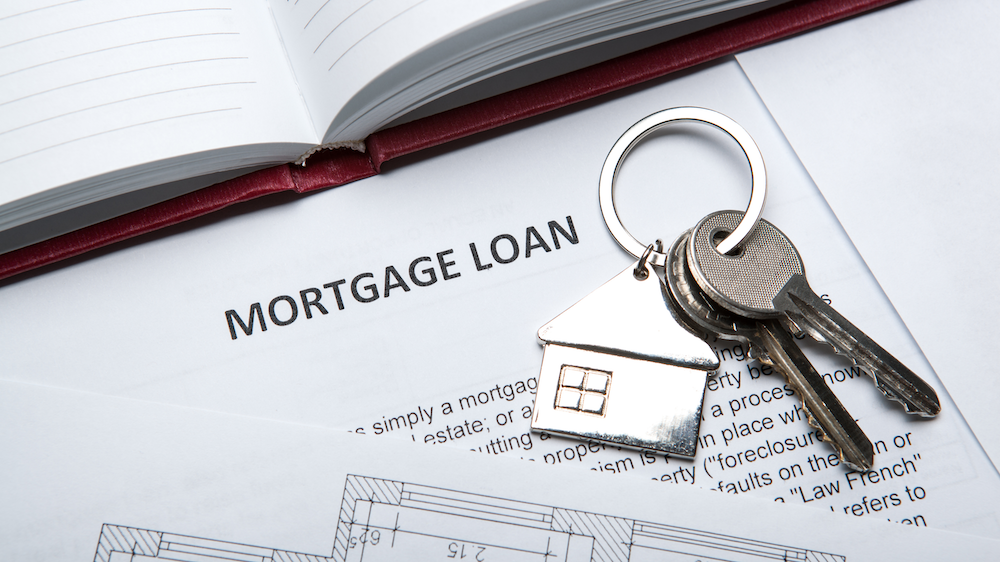
Mortgage Rates Nevada: Navigating A Competitive Housing Market
(insert personalized rate tool here)
Despite the coronavirus pandemic, the housing market in Nevada continues to soar. In Las Vegas and other parts of the state, housing demands keep rising and supplies can’t keep up. Due to this, it may be tough to find affordable houses.
If you’re looking to call Nevada home, entering the current housing market can be a gamble. To help you find the best housing deals, you need to know the latest Nevada mortgage rates.
Comparing loan offers to get the best value on your Nevada home isn’t easy. That’s why we’ve compiled this guide to mortgage rates in Nevada. We also share tips on how to lower your mortgage rates & APR.

Home Loan Options In Nevada
As an American homebuyer, you have a choice between three different mortgage products. Each has its own rates, terms, as well as pros and cons. In this section, we break down the details of each.
Conventional Home Loan
Conventional mortgages are home loans that are offered by private lenders and mortgage companies. These loans are unsecured by the government and adhere to local loan limits set by the Federal Housing Finance Agency (FHFA). Whether it’s a home in Washoe County or Las Vegas, the entire State of Nevada has the national standard loan limit of $548,250.
Conventional loans are generally divided by their rate schemes. Here, we break down the three main subtypes of conventional mortgages.
Fixed-Rate Mortgage
Fixed-rate mortgages are a common kind of conventional loan. They offer mortgage rates that remain the same regardless of market conditions. The predictability of mortgage rates & APR on this loan type makes it popular with first-time homebuyers. Since static rates & APR also mean stable mortgage payment amounts, fixed-rate loans are a top choice among long-term financial planners.
Most people opt for 30-year fixed-rate terms. However, you can also opt for 15-year and 20-year fixed-rate loan terms. While the rates & APR on shorter-term fixed-rate loans tend to be lower, you’ll be saddled with higher mortgage payments.
Adjustable-Rate Mortgage (ARM)
In contrast to a fixed-rate mortgage, the rates on an adjustable-rate mortgage shift periodically. After an introductory period with fixed rates, the ARM rate will adjust annually based on a market index – making it relatively unpredictable and difficult to budget.
Despite this adjustable-rate mortgages are popular because of the lower rates during their introductory period. The most common introductory period in an ARM lasts five years. However, the introductory period can last anywhere from 3 to 10 years.
Jumbo Mortgage
If you’re looking to buy homes priced above local lending limits, you can opt for a jumbo mortgage. These home loans allow you to get a larger loan amount but at a higher interest & annual percentage rate.
Government-Backed Loan
To boost homeownership rates, the federal government offers several loan programs. These programs are typically aimed at certain demographics and feature more affordable mortgage interest rates & APR.
The three major government loan programs are:
- FHA loans: Designed for low-income borrowers, an FHA loan features lower interest rates and credit rating requirements. However, as a tradeoff, you must pay mortgage insurance premium fees for the entire loan’s life.
- VA loans: If you’re a current or former military member, you may be eligible for a VA loan. These loans have no down payment and private mortgage insurance (PMI) fees. However, you’re required to pay funding fees upon closing.
- USDA loans: To qualify for a USDA loan, you need to buy property in eligible rural areas. These mortgages have no down payment requirement and lower PMI fees.
Mortgage Refinancing
In a refinance, you take out a new loan to replace your current mortgage. You can do this for various reasons, like taking advantage of lower refinance rates or converting home equity into cash.
The two types of mortgage refinances are:
- Rate and term refinance: Choosing this refi allows you to modify your loan’s type and length. This can be used to shift your ARM into a fixed-rate loan or shorten your loan terms to get lower rates.
- Cash-out refinance: This refi converts your home equity into cash, through a loan larger than your current mortgage balance. Once your mortgage is paid off, the remaining cash can be used for other things.
Current Nevada Mortgage Rates
Historically, mortgage rates in Nevada skew slightly higher than the national average. In this table, we present the most current Nevada mortgage and refinance rates.
All mortgage and annual percentage rate information listed here is taken from the nation’s major mortgage lenders. We update this table daily!
Today’s Mortgage Rates in Nevada
(insert rate table here)
Your actual rates may vary depending on your financial circumstances. The information on this table is subject to change without prior notice.
We also have a mortgage rate & APR tool at the top of this page. With just a few personal and financial details, we can calculate your personalized Nevada mortgage rate & APR estimate!

First-Time Homebuyer Programs In Nevada
Through the Nevada Housing Division (NHD), the state provides several assistance programs for qualifying homebuyers. While qualification requirements vary by program, there are several requirements you need to fulfill. The borrower must:
- Complete a free homebuyer education course
- Not own a property at the time of closing
- Meet NHD-set income and house price limits
- Buy property located in Nevada to be a primary residence
- Pay additional fees worth $755
Home Is Possible Program
This state-sponsored program provides home loans with competitive rates for various demographics such as low-income borrowers and military members. As an extra benefit, eligible borrowers can also get down payment and closing cost assistance valued up to 5% of the loan value.
In addition to the main Home Is Possible (HIP) loan, the State of Nevada also offers several HIP variant programs.
HIP for First-Time Homebuyers
Similar to the main HIP program, this loan also qualifies you for down payment assistance in the form of a loan valued up to 4% of your main mortgage. If you stay in the property for the next 3 years, this loan can be forgiven.
HIP For Teachers
Aimed toward K-12 public school teachers, HIP For Teacher gives you $7,500 in closing cost and lender fees assistance. This assistance comes in the form of a five-year forgivable loan – if you stay in the property for the next 5 years, this loan is considered forgiven.
HIP For Heroes
This variant of the HIP is aimed at veterans and military personnel. Qualifying borrowers receive a 30-year fixed-rate mortgage with a reduced interest rate & APR. Lower rates & APR mean you can enjoy lower mortgage payments throughout the life of the loan.
Buying A Home In Nevada
To successfully navigate Nevada’s competitive housing market, being prepared is essential. If you’re caught unprepared, someone else might beat you to your dream home. One of the essential preparation steps is learning how to buy homes.
To help you understand what to do, we’ve compiled this guide to the home buying process in Nevada.
Step 1: Apply For A Loan
Before you search for homes, you need to know your budget. The best way to do this is to apply for a loan and get pre-approved.
Research several lenders and apply for a loan at the one you think provides the best value. After the mortgage loan officers go over your profile, you’ll receive a pre-approval letter.
A pre-approval letter contains key details of your mortgage, such as your interest rate, APR, loan type, and loan amount. This document also doubles as proof that you’re financially capable to buy a house.
Step 2: Find An Experienced Realtor
A good real estate agent with experience in your chosen neighborhood can help you immensely. In addition to showing you homes and securing the best deals, you can leverage their local expertise. With their services, you can easily find out important details about the area like local home values and commute times.
Step 3: Start Searching For Homes
A good place to start your house hunt is by picking a neighborhood first. From there, search for the most affordable homes that fit your needs. If the price is below your mortgage ceiling, any leftover money can be used for home improvements.
Step 4: Make An Offer
You might not be the only one with eyes on that house. To compete with other potential buyers, make sure your offer stands out. Ask for advice from your real estate agent and place a bid above the listed home price to beat other buyers.
Step 5: Schedule Appraisals And Inspections
Before finalizing the purchase, you should examine your new property. A home inspector will help you spot any physical issues with the property. Meanwhile, appraisers will make sure you pay an appropriate price for the house.
Step 6: Close On The Purchase
Before closing day, make sure you’ve prepared the money you need to pay closing costs and lender fees. You should also be prepared to sign lots of paperwork on closing day.
Once everything is signed, you’re ready to make moving arrangements.

How To Get A Better Mortgage Rate
Getting the best mortgage rate & APR possible helps you save money in the long run. To reduce your Nevada mortgage rate, here are our top three tips!
Improve Your Credit Score
Your credit report is one of the primary determinants of your interest rate. Your credit score grades how likely you are to pay your debts. If you have a higher credit score, your mortgage loan officer is more likely to give you a lower rate.
To improve your credit score, you can:
- Dispute any errors on your credit history.
- Pay bills on time.
- Keep your credit card balances low.
Increase Your Down Payment
A larger down payment reduces your loan balance. This means you’ll have less of a loan to pay and lenders will be more inclined to give you better rates. However, make sure that you can still afford the larger upfront payment.
Enlist The Services Of A Mortgage Broker
If you’re having trouble finding loan offers, get the help of a mortgage broker. With their experience and resources, they can find the best mortgage deal with a low rate and favorable loan term.

Closing Thoughts
Competition in the Nevada housing market can be harsh. If you’re looking for mortgages to buy your Nevada home, Wesley LLC is here for you. Contact us today for more mortgage resources and a personal consultation!